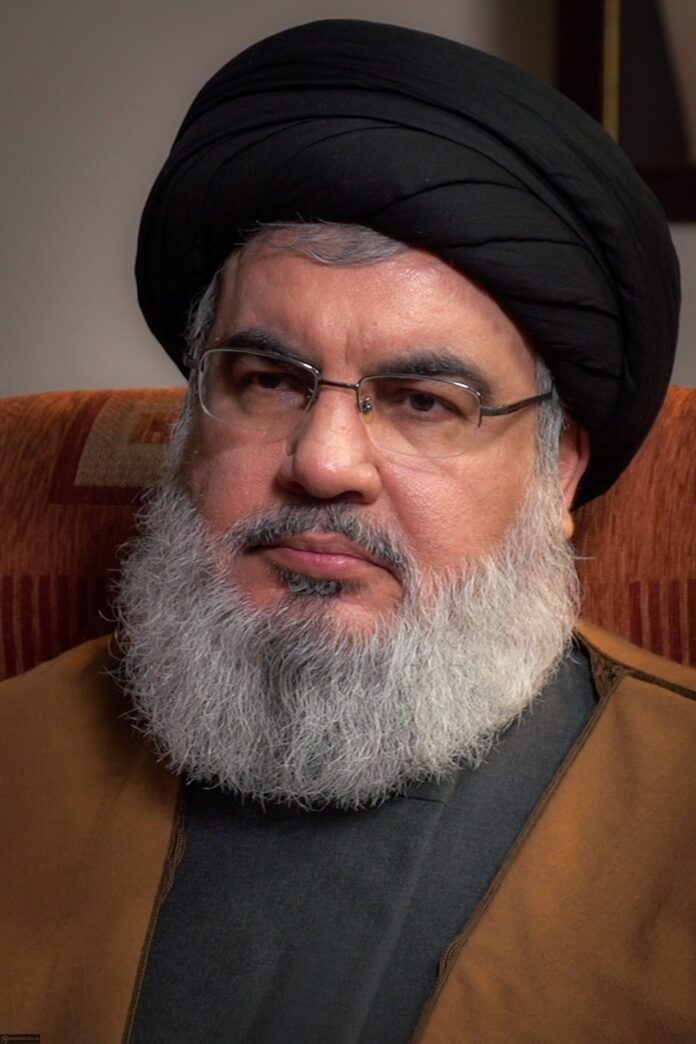Sayyed Hassan Nasrallah pledges a decisive response to the assassination of Fuad Shukr, with potential for action alone or in coordination with allies
In a televised address on August 6, 2024, Sayyed Hassan Nasrallah, the leader of Hezbollah, vowed a “strong and effective” response to the recent killing of the group’s military commander, Fuad Shukr, by Israeli forces. Nasrallah’s statement came as tensions between Hezbollah and Israel remain high, with the potential for broader conflict.
Nasrallah, addressing supporters in Beirut, emphasized that Hezbollah would not tolerate the Israeli assault and would act decisively, either independently or with regional allies. His remarks followed a week of escalating violence and provocations between the two sides. The assassination of Shukr on July 30 has intensified the already volatile situation, exacerbated by ongoing hostilities in Gaza.
Embed from Getty ImagesHezbollah’s leader avoided detailing the form or timing of the retaliation but assured that it would be impactful. He criticized international efforts to dissuade Hezbollah from retaliating, suggesting that these attempts had been unsuccessful. The address was marked by a show of defiance and solidarity from Hezbollah members, who gathered in Beirut’s southern suburbs to hear Nasrallah’s speech.
Earlier that day, Israeli warplanes conducted low-altitude flights over Beirut, creating sonic booms that disrupted the city. Nasrallah dismissed these actions as provocations meant to unsettle the Lebanese population. The Israeli military had not commented on the flights or the broader situation.
The escalating conflict has raised fears of a larger regional war. Iran, a key ally of Hezbollah, has expressed anger over the recent killings, particularly the assassination of Hamas leader Yehya Sinwar. The twin attacks on prominent figures from Hezbollah and Hamas have been described by Nasrallah as Israeli attempts to undermine the Axis of Resistance, a coalition of anti-Israel groups supported by Iran.
Hezbollah’s recent actions include drone strikes on Israeli military sites and attacks on military vehicles. The Israeli military reported intercepting some of these drones but acknowledged that injuries occurred due to interceptor failures. The ongoing conflict has led to casualties on both sides, including the death of four Hezbollah fighters in a recent strike on a Lebanese home.
Nasrallah framed the response to Shukr’s killing as part of a broader conflict that has been ongoing since October 2023. He indicated that Hezbollah’s reaction would be substantial but strategically timed. The leader’s rhetoric underscores the deepening rift between Hezbollah and Israel, with implications for regional stability and the broader Middle East conflict.
Analysis
Political: Nasrallah’s vow to retaliate against Israel reflects Hezbollah’s determination to maintain its influence and assert its position in the ongoing regional conflict. The timing and nature of the response will likely influence regional geopolitics, potentially affecting relations between Lebanon, Israel, and other Middle Eastern countries. The situation remains fluid, with potential for further escalation impacting diplomatic efforts and regional stability.
Social: The assassination and the subsequent threats of retaliation by Hezbollah highlight the intense and often personal nature of the conflict between Israel and its adversaries. The rhetoric from Nasrallah, combined with the visible support from Hezbollah members, illustrates the deep-seated grievances and the social impact of the ongoing violence on communities in Lebanon and beyond. The societal reactions to these events will likely shape public opinion and influence future actions.
Racial: The conflict, while primarily political and ideological, also intersects with ethnic and national identities. The violence and retaliation further entrench divisions between Israelis and Palestinians, as well as between Hezbollah and its supporters versus Israel. The ongoing conflict reinforces existing racial and ethnic tensions in the region, with implications for how different communities perceive and react to the violence.
Gender: The recent developments do not directly address gender issues but are part of a broader conflict that affects all aspects of life, including gender dynamics. In conflict zones, women and children often bear a disproportionate burden, and the escalation of violence can exacerbate existing gender inequalities. The impact on gender roles and issues may become more pronounced as the conflict continues.
Economic: The escalation of hostilities between Hezbollah and Israel has significant economic implications, particularly for Lebanon, which is already grappling with economic instability. The conflict disrupts daily life, damages infrastructure, and deters investment and tourism. The broader regional economic impact includes potential effects on trade routes and economic relationships, with further violence likely to exacerbate existing economic challenges.
